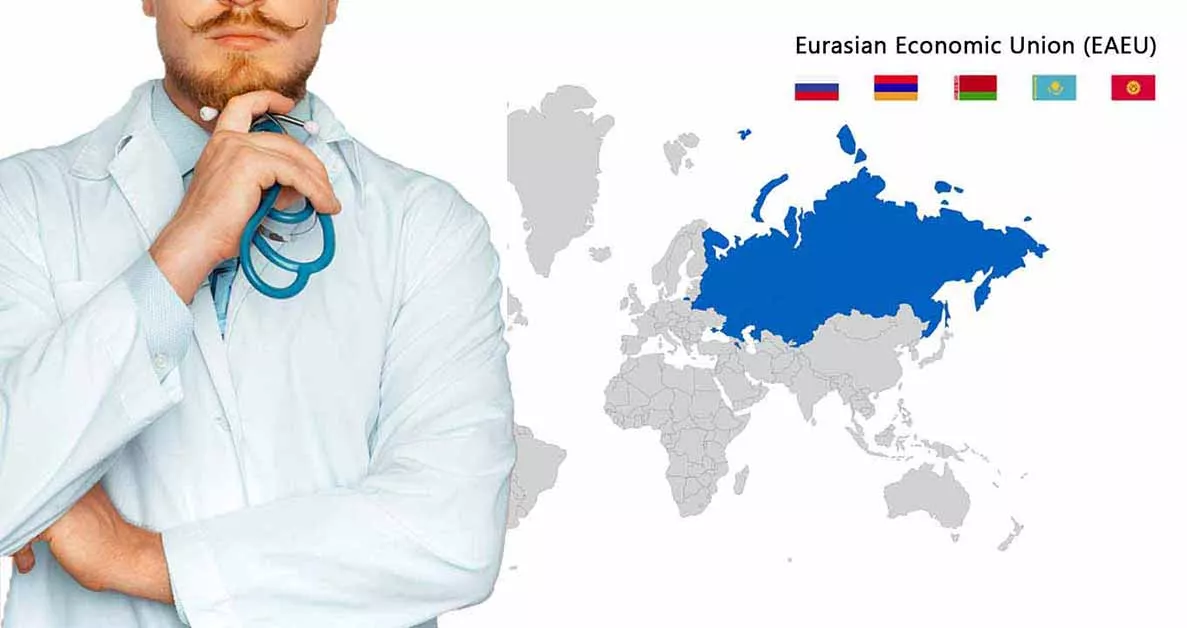
Navigating the EAEU legislative changes for Medicinal Products
11 july 2022

The Eurasian Economic Union (EAEU), consisting of: Armenia, Belarus, Kazakhstan, Kyrgyzstan and Russia, are in the process of unifying the regulatory framework around the licensing of new pharmaceuticals and medical devices. The changes to the legislation seek to update the drug submission process ensuring that all registered medicinal products comply with the new standards by 2025.
Over the last few years, there have been multiple updates and amendments to the legislation surrounding the licensing process. Recent changes have affected the timeline for products currently in the registration process. In addition, the costs of new drug submissions, renewals and upgrades have gone up by a factor of two to threefold.
The new legislation aims to move from a process of licensing in individual states (or in one reference member state) to one where a single application can be made to the EAEU. There are also changes which will affect all medicines already registered in accordance with national legislation. To be compliant with the new legislation, products on the market will need to be revalidated and updated by 2025, which will include submitting a complete dossier along with evidence from clinical and pre-clinical trials. After 2025, all national certificates will no longer be valid. To prepare for this transition, it is recommended that pharmaceutical companies start preparing now by checking the dossier to identify what parts need updating and to pinpoint where further information may be needed to ensure continued access to the EAEU after the deadline.
To further complicate things, on March 6, 2022, several amendments were made to the legislation in reaction to the current situation in Ukraine. Decree 299 of the Russian Federation permits local companies and individuals to use inventions, utility models and industrial designs deriving from certain countries without consent or payment of compensation. This effectively means that the EAEU will not follow Western intellectual property law and patents on medications and devices for the foreseeable future. Compulsory licensing has also been introduced in which licenses can be granted whatever is the patent status of the medicinal product. hat effect this has on willingness to engage with the EAEU from EU and US based pharma remains to be decided based on regulatory strategy.
ProductLife Group (PLG) can help guide clients through these changes. PLG’s team in the region can help you to understand each step of the process by offering strategic advice and the best course of action for clients to avoid delays. With close communication with the health authorities, PLG can offer up-to-date information on the recent legislative changes and help you to reduce the workload arising from these changes. To find out more about how PLG can help you, ask here
Register to our news and events
Go to our Events to register
Go to our News to get insights
